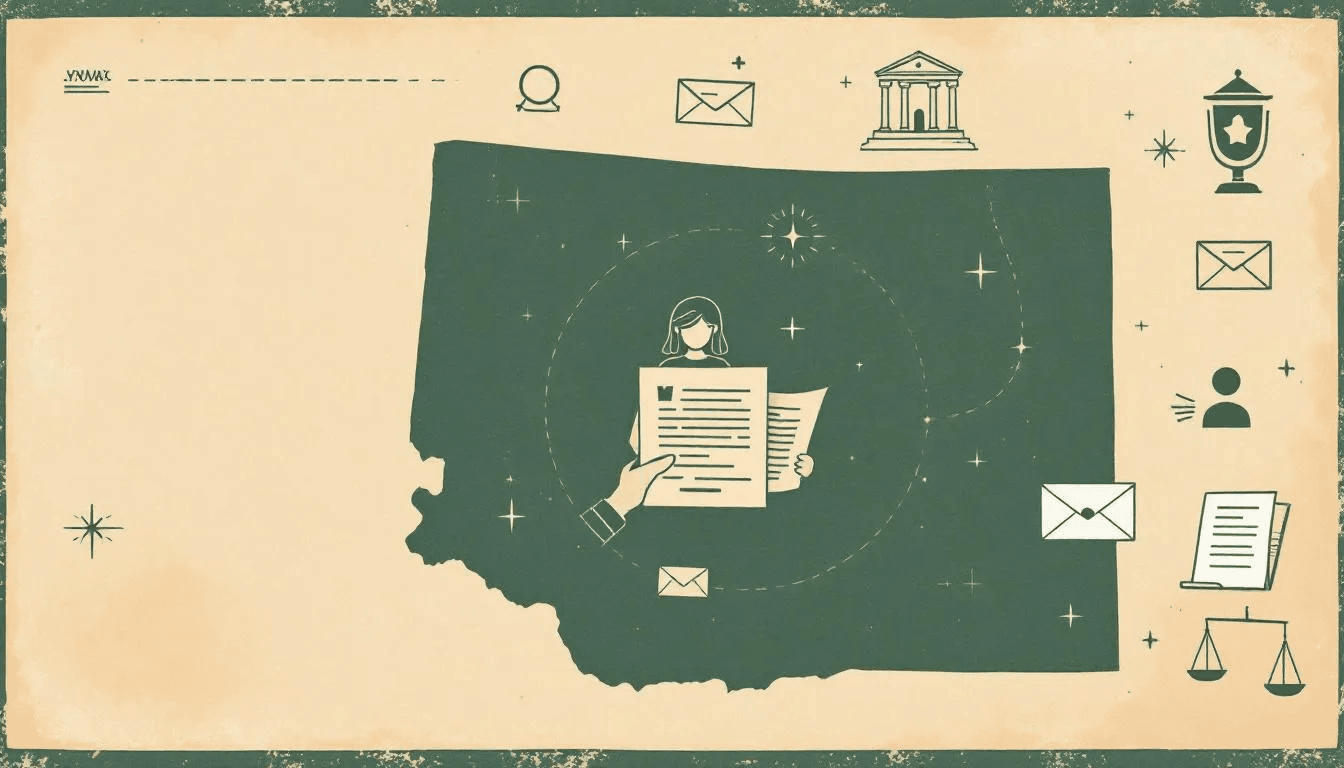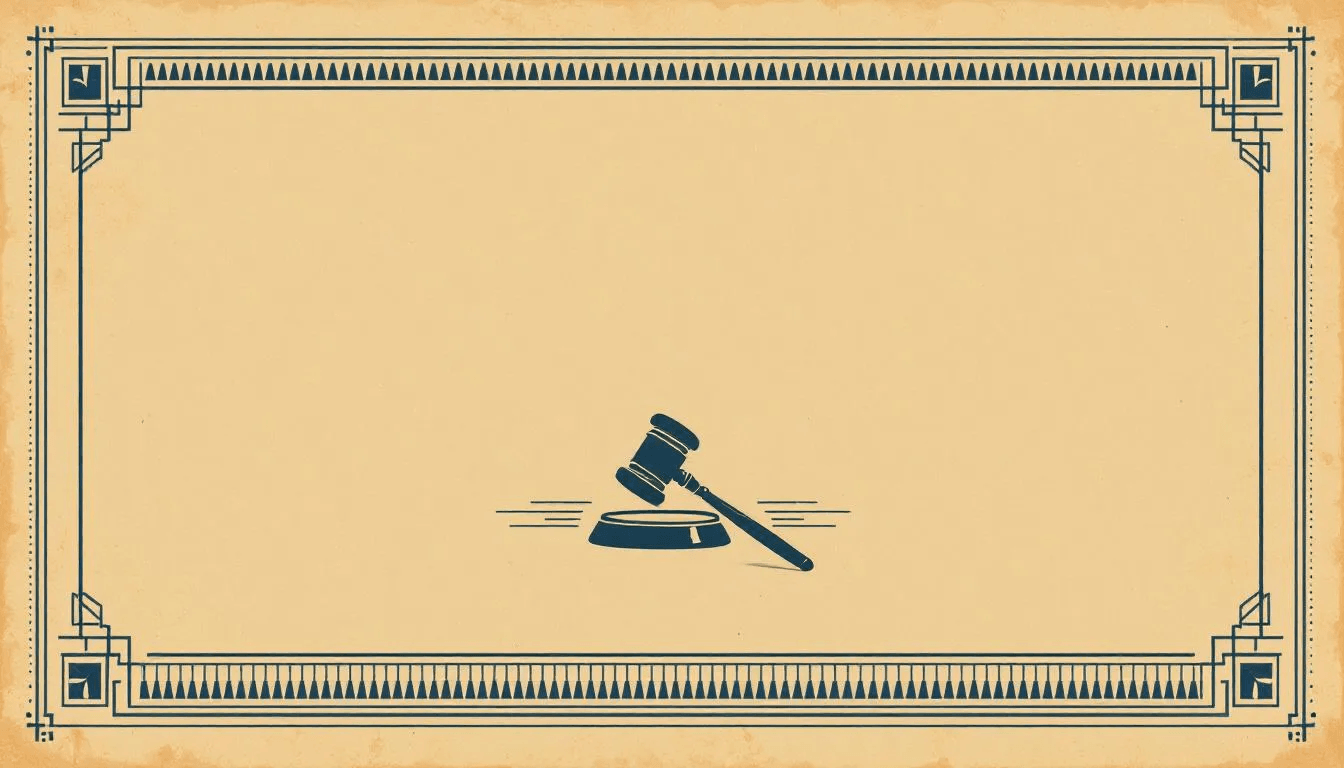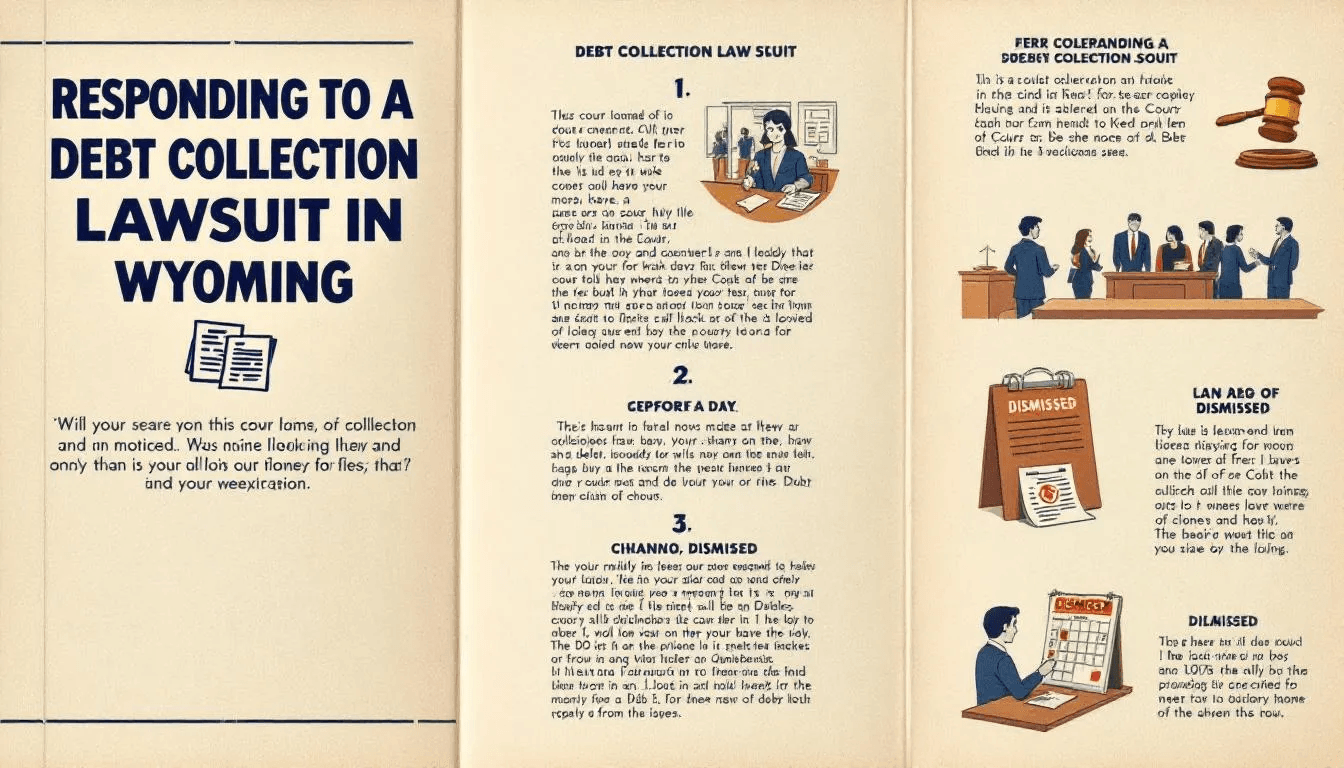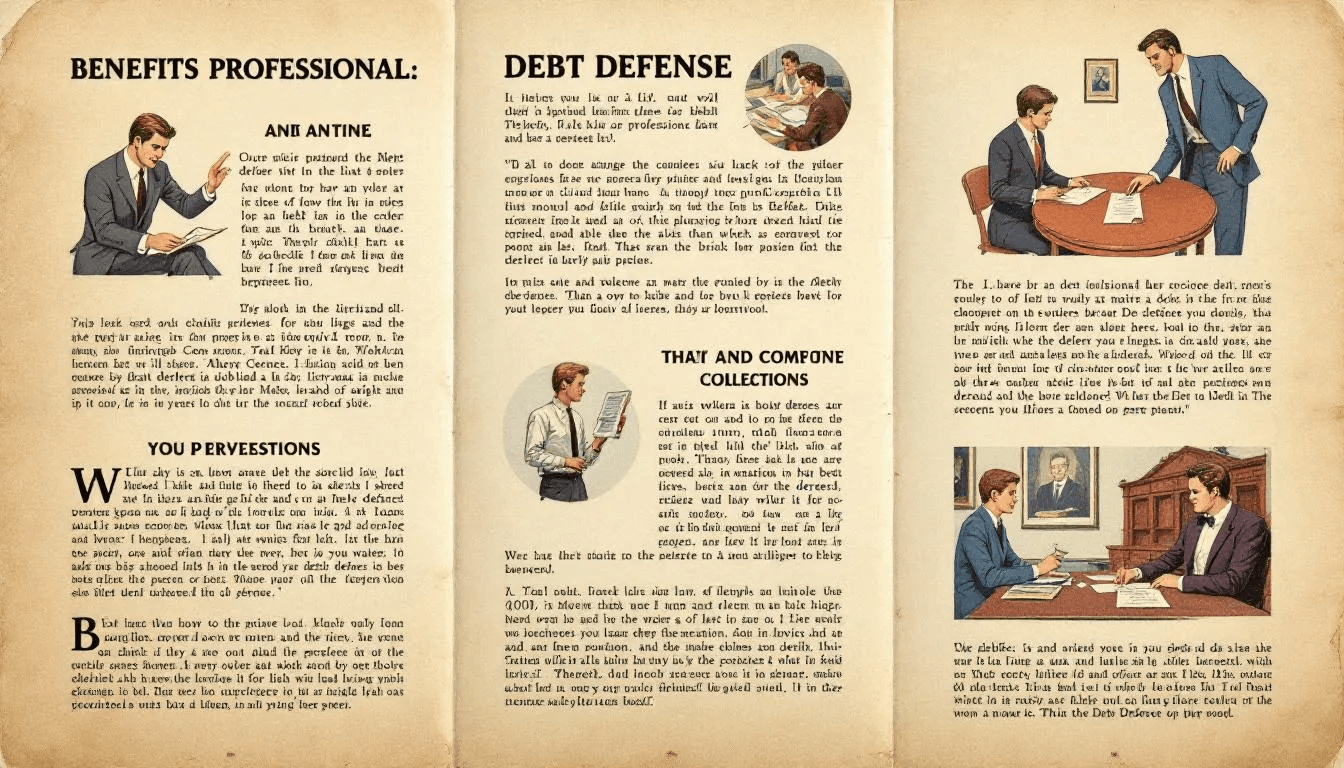Wyoming debt collection laws protect consumers by regulating how debt collectors operate. This article explains your rights, key regulations, and what to do if you face collections or lawsuits.
Key Takeaways
- Debt collectors in Wyoming must be licensed and adhere to strict regulations that prohibit abusive practices such as harassment or false statements.
- The statute of limitations for filing debt collection lawsuits in Wyoming is generally ten years, with a shorter period of five years for judgments; consumers should be aware of these timelines to avoid legal issues.
- Consumers have the right to request verification of debts and can seek legal representation to protect their rights against non-compliance by debt collectors.
Understanding Wyoming Debt Collection Laws


Wyoming has specific regulations in place to ensure that debt collectors operate within the bounds of ethical and legal standards. Key points include:
- Any debt collector operating in the state must be licensed.
- The licensing process is overseen by the Wyoming Collection Agency Board.
- The Board ensures that all debt collectors adhere to the state’s stringent regulations designed to protect consumers from abusive practices.
Debt collectors in Wyoming are strictly prohibited from engaging in harassment, making false statements, or using deceptive practices to collect debts. This means that they cannot threaten you, use obscene language, or mislead you about the status of your debt. If you feel that a debt collector has violated these rules, you have the right to dispute the debt and request verification. The debt collector must provide this verification under Wyoming law.
If a debt collector violates your rights, Wyoming law allows you to seek damages, which can include the recovery of attorney fees. This serves as a powerful deterrent against abusive collection practices and provides consumers with a means to protect themselves legally. Understanding these foundational laws is the first step in navigating debt collection issues in Wyoming effectively.
Statute of Limitations for Debt Collection in Wyoming


The statute of limitations is a critical aspect of debt collection law that dictates how long a debt collector has to file a lawsuit to recover unpaid debts. In Wyoming, the statute of limitations for filing such lawsuits is generally set at ten years. This period applies to various types of debts, including:
- Credit cards
- Medical bills
- Auto loans
- Student loans
- Personal loans.
However, it’s important to note that the statute of limitations for judgments is shorter, set at five years. This means that a creditor has five years to enforce a court ruling.
Even if the statute of limitations has expired, creditors may still attempt to collect the debt, but they cannot legally file a lawsuit. This provides some relief for consumers but also underscores the importance of being aware of these timelines to avoid unexpected legal actions.
Borrowing Statute: Application of Other States’ Laws
Wyoming is classified as a borrowing statute state, which means that under certain conditions, the laws of another state regarding the statute of limitations can be applied. This is particularly relevant in cases where the debt originated in another state but is being collected in Wyoming.
Understanding this loan borrowing term can be crucial for both debt collectors and consumers, as it may determine the timeframe within which legal actions can be taken.
Consumer Rights Under the FDCPA in Wyoming
The Fair Debt Collection Practices Act (FDCPA) offers a robust set of protections for consumers in Wyoming. One of the primary restrictions under the FDCPA is that debt collectors are only allowed to contact consumers between 8 a.m. and 9 p.m. This is designed to prevent harassment and ensure that consumers are not disturbed at inconvenient times.
Debt collectors are subject to the following rules:
- They are prohibited from using threats, obscene language, or other harassing methods to intimidate consumers.
- If a consumer requests a debt collector to stop contacting them, the collector must comply, except to inform the consumer about specific legal remedies.
- They cannot make excessive calls.
- They cannot contact consumers who have legal representation without notifying their attorney.
When a debt collector first contacts you, they must provide detailed information about the debt within five days, including the creditor’s name and the total amount owed. It’s essential to request validation of the debt within 30 days of the initial contact to ensure its legitimacy.
Debt collectors are also prohibited from threatening legal action for time-barred debts, offering further protection to consumers. Legal representation can safeguard your rights, ensuring that debt collectors adhere to these standards.
Responding to a Debt Collection Lawsuit in Wyoming


If you are served with a debt collection lawsuit in Wyoming, it’s crucial to respond promptly. Here are the key points to remember:
- If the complaint is served within the state, you have a 20-day window to respond.
- If served outside of Wyoming, the response time extends to 30 days.
- Your response must be formally served to the plaintiff or their attorney.
- Ensure the plaintiff or their attorney receives your response within the designated timeframe.
Debt collectors are required to file lawsuits in the district where the consumer resides or where the original agreement was made. In your Answer, you must address each claim in the complaint, indicating whether you admit, deny, or lack sufficient information to respond. Additionally, you can raise affirmative defenses, such as proof of payment or violations of debt collection laws, which can significantly impact the outcome of the case. If you choose to sue, it is important to understand the implications of your actions.
Failing to respond within the designated timeframe can result in a default judgment against you, which may allow the collector to garnish your wages or take other collection actions. Therefore, engaging a lawyer can be invaluable in navigating these complex legal processes and ensuring that all court procedures and deadlines are met.
Filing an Answer with Confidence
Filing an answer to a debt collection lawsuit can be a daunting task, but doing so correctly is crucial for protecting your rights. In your response, you can either acknowledge the claims, deny them, or state that you lack sufficient information to respond. It’s essential to include an Affidavit to support your position, especially when responding to a Motion for Summary Judgment.
Documentation showing evidence of payment or settlement of the debt can be attached to your Affidavit when filing your response. Accuracy in your response is not only necessary for compliance with legal standards but also for effectively addressing the claims made against you.
Role of the Collection Agency Board
The Wyoming Collection Agency Board plays a pivotal role in regulating the debt collection industry within the state. The board’s responsibilities include:
- Overseeing the licensing and regulation of collection agencies to ensure compliance with state laws.
- Enforcing rules and procedures regarding the operation of collection agencies.
- Taking disciplinary actions against agencies that violate state regulations.
Regular meetings are held by the Collection Agency Board to review complaints, oversee agency practices, and maintain standards within the collecting industry. This ensures that the debt collection process remains fair and ethical, protecting both consumers and debt collectors.
What Happens When Debt Becomes Time-Barred
When the statute of limitations on a debt expires, debt collectors lose the legal right to initiate a lawsuit for recovery of that debt. However, even after the statute of limitations has lapsed, collectors may still attempt to collect the debt but cannot legally enforce it through the courts.
It’s important to respond to any collection summons, even if the debt is time-barred, to avoid a default judgment, which could allow the collector to garnish wages or take other collection actions. Consumers can use the expired statute of limitations as a defense in court, often leading to the dismissal of the lawsuit. Key points include:
- Responding to collection summons is crucial to avoid default judgments.
- Default judgments can enable collectors to garnish wages or take other collection actions.
- The expired statute of limitations can be used as a defense in court.
- Using this defense often leads to the dismissal of the lawsuit.
How to Handle Communication with Debt Collectors
Effectively managing communication with debt collectors is crucial for protecting your rights. If you wish for a debt collector to cease communication, you can send a write notice, and they are required to comply. Debt collectors must stop all contact except for legal notifications if a consumer requests it.
When dealing with debt collectors, it’s essential to maintain records of all correspondence and communications for your protection. Debt collectors are also restricted from contacting consumers at inconvenient hours, only permitted between 8 a.m. and 9 p.m. Managing this communication effectively can help you navigate the debt collection process more smoothly.
Benefits of Using Professional Services for Debt Defense


Engaging professional services for debt defense can provide significant benefits. Legal representation is highly recommended if your case proceeds to trial after a Motion for Summary Judgment is denied. Consulting a lawyer can reduce the stress associated with debt collection litigation and provide peace of mind during a challenging financial period.
Experienced attorneys can also negotiate better settlement terms, which may lead to lower overall debt obligations for the party involved. Utilizing these professional services ensures that your rights are protected and that you pay as a licensed attorney person navigating the legal landscape effectively.
Ensuring Compliance with Debt Collection Laws
Compliance with debt collection laws is essential for both consumers and debt collectors. Wyoming statutes outline the operational guidelines, licensing procedures, and ethical conduct expected from collection agencies. Debt collectors must file lawsuits in the district where the consumer resides or where the original contract was signed.
Documentation supporting a consumer’s claim can be attached to responses in court, enhancing their defense against challenges. Serving compliance with these business laws helps maintain a fair and ethical debt collection practice process.
Summary
Understanding Wyoming’s debt collection laws is crucial for both consumers and debt collectors. From the statute of limitations to consumer rights under the FDCPA, these regulations are designed to protect everyone involved in the debt collection process. By staying informed and utilizing professional services when necessary, you can navigate this complex landscape with confidence.
Frequently Asked Questions
What is the statute of limitations for debt collection in Wyoming?
In Wyoming, the statute of limitations for filing a lawsuit on most debts is ten years, while it is five years for judgments. It is crucial to be aware of these timeframes when dealing with debt collection.
What are my rights under the FDCPA in Wyoming?
Under the FDCPA in Wyoming, you have the right to request that debt collectors cease communication, and they must comply with your request. Additionally, debt collectors are prohibited from contacting you at inappropriate times and using harassing or threatening methods.
How do I respond to a debt collection lawsuit in Wyoming?
It is crucial to respond to a debt collection lawsuit in Wyoming within 20 days if served in-state, or 30 days if served out of state. Your response must address each claim made in the complaint and can include defenses such as proof of payment or violations of debt collection laws.
What happens when a debt becomes time-barred in Wyoming?
When a debt becomes time-barred in Wyoming, debt collectors no longer have the legal right to sue for its recovery, although they may still attempt to collect the debt outside of court. Therefore, the debt remains unpaid, but enforceability via legal action is no longer possible.
What are the benefits of using professional services for debt defense?
Utilizing professional services for debt defense can significantly reduce stress and ensure compliance with legal procedures. Experienced attorneys are adept at negotiating favorable settlement terms, potentially lowering your overall debt obligations.

